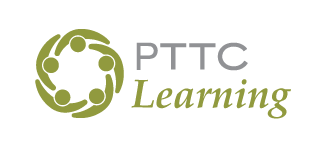Overview
This 4-session series offers a unique interactive experience that explores the six principles of the Prevention Code of Ethics using realistic examples designed to strengthen participants’ abilities to manage challenging situations in their work. The learning series is structured to also provide online consultation, skill-based learning and practice, group and individual activities, reading assignments, and discussion on topics essential to application of an ethical decision-making process.
When:
States & American Samoa:
Dates: December 2, 4, 9, 11
Time:
4:00 PM – 5:30 PM Arizona
3:00 PM – 4:30 PM Pacific
1:00 PM – 2:30 PM Hawaii
12:00 PM – 1:30 PM American Samoa
Pacific Jurisdictions:
Dates: December 3, 5, 10, 12
Time:
11:00 AM – 12:30 PM Republic of the Marshall Islands
10:00 AM – 11:30 AM Pohnpei and Kosrae
9:00 AM – 10:30 AM Guam, Northern Mariana Islands, Chuuk, and Yap
8:00 AM – 9:30 AM Republic of Palau
Facilitator:
Christina López-Gutiérrez has extensive experience in evidence-based substance misuse prevention practices at the local, state, and bi-national levels. Her career began in the late 1990s, implementing “model” curricula in communities and evolved to providing Training and Technical Assistance to community-based coalitions, single state agencies, Promotores and Community Health Workers. Ms. López-Gutiérrez has been part of various training teams to include the U.S.-Mexico Border states and sister cities in Mexico with the delivery of the Strategic Prevention Framework in Spanish. More recently, Ms. López-Gutiérrez has participated in a state-wide evaluation team to support grantees aiming to decrease Prescription Misuse and Underage drinking.
Objectives:
- Define ethics and related terms
- Describe the six principles in the Prevention Code of Ethics
- Use an ethical decision-making process to apply the Prevention Code of Ethics
Audience:
- Substance misuse prevention practitioners located in the Pacific Southwest (HHS Region 9) states and jurisdictions of American Samoa, Arizona, California, Commonwealth of Northern Mariana Islands, Federated States of Micronesia, Guam, Hawaii, Nevada, Republic of Marshall Islands, and Republic of Palau.
- Prevention practitioners who would like to become a Certified Prevention Specialist or need continuing education hours to meet re-certification requirements.
- Please note: This training is reserved for prevention professionals working in HHS Region 9.
- Prevention professionals interested in this course but who work outside of HHS Region 9 are encouraged to contact their region’s PTTC to learn about similar courses available to them.
Participant Commitment and Expectations:
- If your experience with Zoom is limited or you want to review key features of Zoom, please view the 20-minute Introduction to Zoom video prior to the first session on Tuesday, December 2, 2025 on how to use and maximize the platform.
- Participate in 4 sessions of training, for 1.5 hours on scheduled series days/times.
- Complete up to ONE hour of independent learning activities between each session.
- Use a web-camera and have access to appropriate technology to join the online videoconferencing platform (i.e., internet connection, built-in or USB webcam, desktop/laptop computer, built-in/USB/Bluetooth speakers & microphone).
- Actively engage and be on camera 90% of the time during each session, since this is not a webinar series and active participation is essential to gain/improve skills.
Please Note:
This EPLS is not a webinar series. Active participation in each session is essential to gain and improve skills. If you cannot attend these sessions, you will forfeit your attendance.
The Pacific Southwest PTTC is committed to the safety of all participants. Driving while participating in these sessions is strongly discouraged, as it is seen as a danger to the participant. If driving cannot be avoided during your scheduled session for any reason, please contact the PTTC staff at pspttc-info@casat.org .
In addition, it is expected that participants will have access to the appropriate technology by Tuesday, December 2, 2025 in order to fully participate and be on camera at least 90% of the time.
If you have questions regarding technology requirements or registration details contact pspttc-info@casat.org.
Certificates:
Participants who complete all 4 sessions will receive a certificate of attendance for 10 contact hours. No partial credit is given for this course. Participants will need to confirm with their certification board to determine if these certification hours are accepted towards their specific certification requirements.
To help make engagement more comfortable, we limit the number of people who can enroll in EPLS. If you cannot commit to joining the sessions or completing the prep-work packets, please defer this opportunity to others on our waiting list.
The Pacific Southwest PTTC is administered by CASAT at the University of Nevada, Reno.

